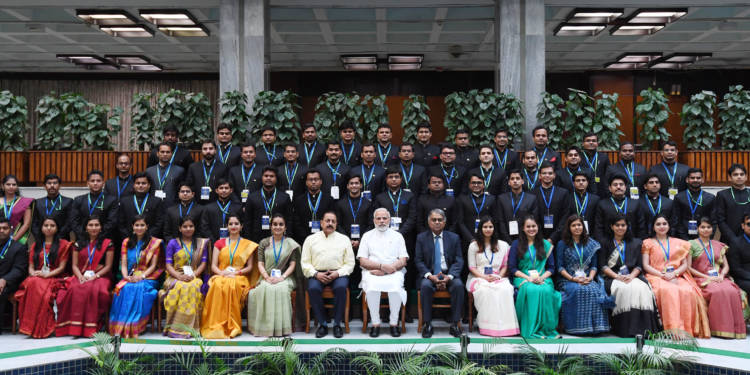In the last few years, Modi government has made efforts to break the IAS monopoly in the upper echelons of bureaucracy. For decades, the top post at ministries- joint secretary, additional secretary and secretary- were practically reserved for those who belong to IAS cadre of civil services.
As per a report by ThePrint, the Modi government has decided to scrap the ‘opaque’ empanelment process, and advertise for the posts to give a level playing field to officers belonging to all services, and thereby end the IAS monopoly for the top posts.
The officers, who belong to other cadres like IRS, had complained that none of the top posts go to officers from their cadre. “Currently, no officer from the IRS is at the secretary level, or even at the additional secretary level. The systematic discrimination has led to a negligible number of officers from our service having an opportunity to work at that level,” reads a letter by IRS association written to Modi government last year.
The new process will not only set up level playing field between those belonging to IAS and other services, but also provide space for appointment of ‘experts’. For example- the post of Revenue Secretary, which currently belongs to IAS cadre officer (Ajay Bhushan Pandy, 1984 batch), might go to people from IRS cadre if the new proposal is implemented.
In July this year, among the 33 new joint secretaries appointed by the Modi government, only seven belonged to IAS cadre. All the other appointments were from various other cadres of civil services.
The Modi government has decided that the appointments will be on the basis of merit, not seniority or empanelment process. The Railways has been biggest beneficiary of merit and expertise based promotion, where the majority of the officers appointed to join secretary level were from Indian Railway Services (IRS). Earlier, most of the senior officers in railways used to be appointed from IAS cadre.
In the last five and a half years, Modi government took many steps to reform the bureaucracy. PM Modi has been working on strengthening as well removing the weak chinks in the bureaucratic setup of the nation with a flurry of schemes. A lateral door has been opened wherein anyone can now be a top bureaucrat without climbing the ladders of bureaucracy.
The Indian bureaucracy is considered to be one of the most inefficient institutions in the world. Majority of the civil servants are ‘old school’ due to their training which is based on Nehruvian idealism. The institutions like Indian Foreign Service have been severely criticized for not being able to operate in modern post-liberal world. The global liberal order broke down in the last few years and a new era of Nationalism ushered across the globe from Americas to South Asia. But our Foreign Service officers have not ungraded their skill set according to the new requirements and ‘Indian interest’ around the globe.
The work-culture in the government has been leisurely and often casual. Employees got timely appraisals without making much effort for it and rampant corruption pervaded all levels. Employees were not under any obligation to work because government jobs came with an assurance of employment till working age and pensions after it and to top it all, promotions were a given. You spent a certain number of years in a rank and then get promoted to the next automatically. And then came the Modi government in 2014 and things started to change.
The new system, where ‘corporate work ethics’ are being introduced in the bureaucracy, will make the government machinery more efficient. This is the face of new India which is an economy driven by a rule based meritocracy, and one must thank PM Modi for this change.
























